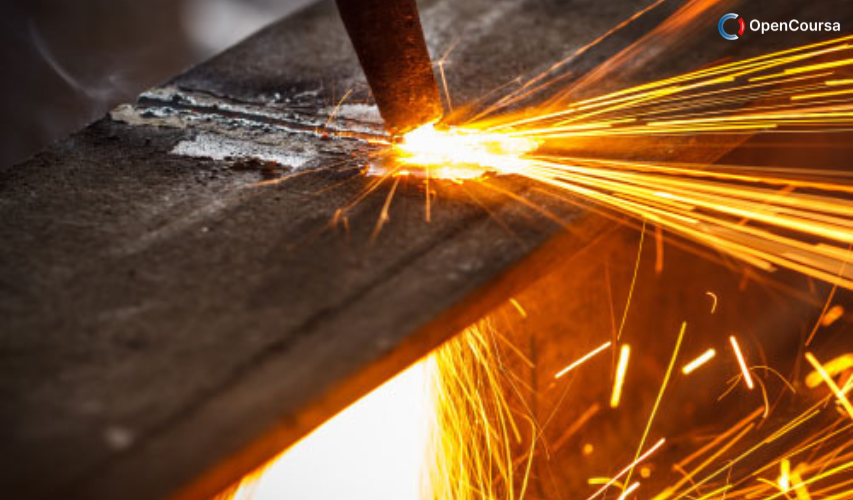Home » Course Layouts » Free Course Layout Udemy
Welding Engineering. Instructor: Dr. D. K. Dwivedi, Department of Mechanical and Industrial Engineering, IIT Roorkee.
0
1
English
English [CC]
- Learn basic syntax that can apply to any language.
- Learn what is a programming language and the basic concepts for beginners.
- Understand what is Javascript in it's truest form.
- Know the basic syntax of Javascript.
- Know some hidden quirks in Javascript.
Description
Welding is one most the most commonly used fabrication techniques. For successful application of welding to produced sound weld joints, it is utmost important to understand the science and technology behind the welding. This course is aimed at familiarizing the students with the fundamentals of arc welding processes, weld joint design, metallurgical aspects in welding of steel, and assessing the quality and suitability of weld joints. Topics related with weldability of metals (steel, cast iron and aluminium alloys of commercial importance) shall also be covered to equip the students technological input for handling the problems in welding of selected metals and alloys. (from nptel.ac.in)
Course content
-
- Lecture 01 – Introduction to Welding Engineering Unlimited
- Lecture 02 – Classification of Welding Processes Unlimited
- Lecture 03 – Classification of Welding Processes (cont.) Unlimited
- Lecture 04 – Sources of Heat and Protection of Weld Pool Unlimited
- Lecture 05 – Protection of Weld Pool Unlimited
-
- Lecture 06 – Introduction to the Physics of Welding Arc Unlimited
- Lecture 07 – Fundamentals of Arc Initiation Unlimited
- Lecture 08 – Arc Maintenance and Arc Characteristics Unlimited
- Lecture 09 – Arc Forces Unlimited
- Lecture 10 – Arc Efficiency Unlimited
- Lecture 11 – Melting Rate in Different Welding Processes Unlimited
- Lecture 12 – Types of Power Sources and their Characteristics Unlimited
- Lecture 13 – Types of Power Sources and their Characteristics (cont.) Unlimited
- Lecture 23 – Welding Thermal Cycle (WTC) Unlimited
- Lecture 24 – Effect of WTC and Cooling Rate in Welding Unlimited
- Lecture 25 – Cooling Rate Unlimited
- Lecture 26 – Peak Temperature and Solidification Rate Unlimited
- Lecture 27 – Residual Stress Unlimited
- Lecture 28 – Residual Stress (cont.) Unlimited
- Lecture 35 – Introduction to Inspection and Testing of Welding Joint Unlimited
- Lecture 36 – Destructive Testing and Non-destructive Techniques Unlimited
N.A
- 5 stars0
- 4 stars0
- 3 stars0
- 2 stars0
- 1 stars0
No Reviews found for this course.










